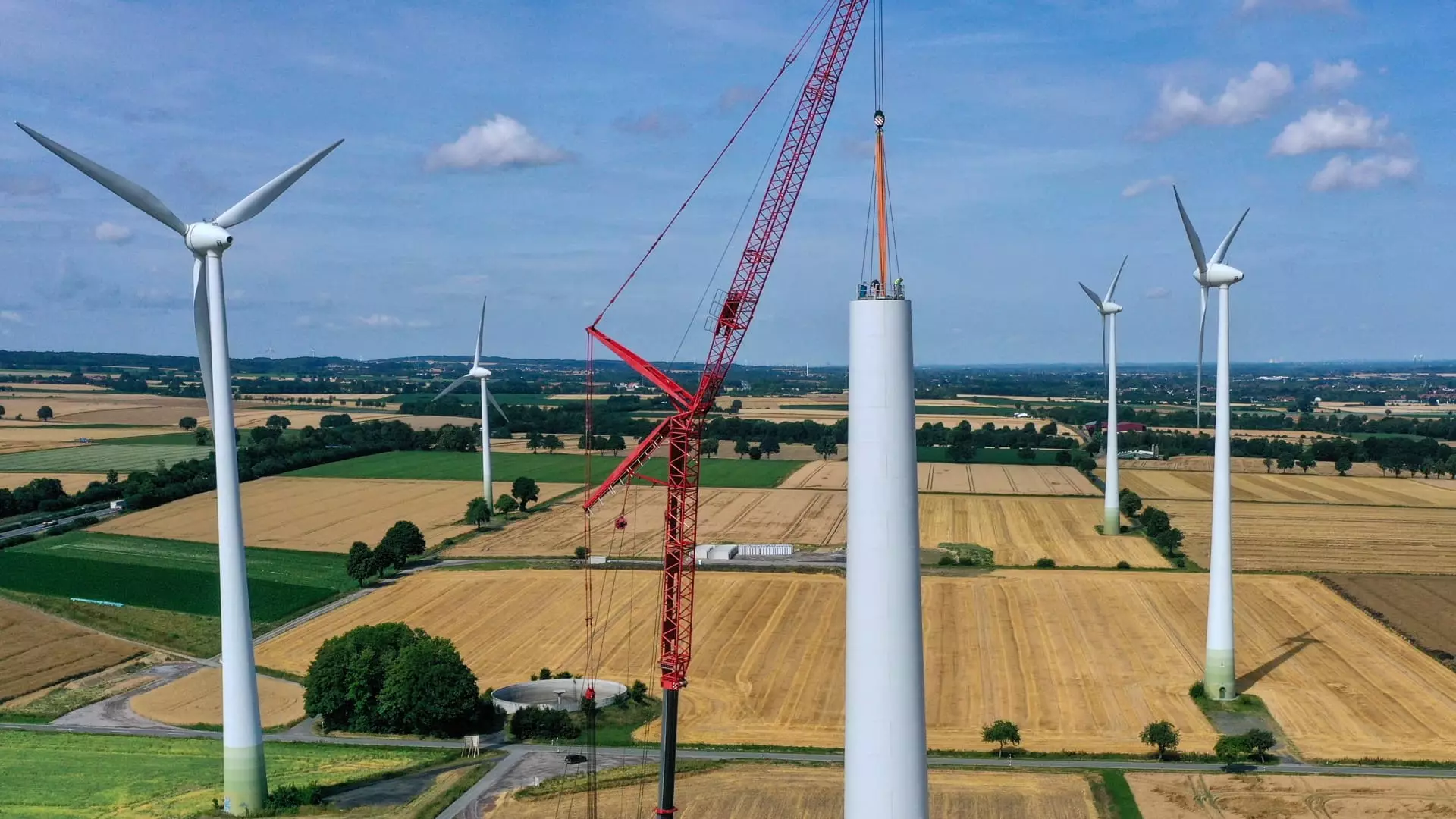Renewable energy firms are currently facing a dire earnings season, with multiple challenges affecting their profitability. In this article, we will explore the struggles encountered by these companies, including supply chain disruptions, manufacturing faults, and rising production costs. We will also examine the economic sustainability of large-scale renewable energy projects and the impact of low electricity prices on manufacturers. Furthermore, we will analyze the decreasing assets of major renewable energy firms and the need for government subsidies to restore balance to the market.
As the world rapidly transitions towards cleaner energy sources, equipment manufacturers are struggling to meet the soaring global demand. This struggle has led to supply chain disruptions and manufacturing faults, particularly in the wind turbine sector. Siemens Energy’s subsidiary, Siemens Gamesa, experienced notable manufacturing faults due to the increased pace and scale of turbine construction. Consequently, Siemens Energy had to abandon its profit forecast and seek guarantees from the German government. These challenges highlight the difficulties faced by wind energy companies in meeting the demand and maintaining profitability.
In addition to internal challenges, specialist wind energy firms often find themselves outbid for seabed licenses by traditional oil and gas players. Even if they secure a contract, the electricity prices are often too low to cover the manufacturing costs. To address this issue, renewable energy companies rely on subsidies from European and U.S. governments. However, the decreasing profitability of wind energy projects has resulted in a sharp decline in wind energy stocks since the beginning of the year.
A report by Allianz Research highlights the challenges faced by the renewable energy sector, with the eight largest firms experiencing a combined $3 billion decrease in assets during the first half of the year. The report identifies various factors contributing to this decrease, including rising construction and financing costs, quality-control problems, and supply chain issues. Wind-power projects, in particular, have faced turbulent conditions due to inflation and global energy price fluctuations. Many of these projects are now becoming increasingly unprofitable, putting them at risk of abandonment without government support.
Renewable energy companies such as Danish company Ørsted have had to make difficult decisions in light of the challenging market conditions. Ørsted recently announced the cancellation of two offshore projects in the U.S., resulting in impairments totaling $5.6 billion. However, Vestas, another Danish company, offers a glimmer of hope. Despite the external factors clouding its near-term outlook, Vestas reported better-than-expected earnings for the third quarter. The CEO of Vestas emphasizes the importance of discipline and reliability in becoming a winner in the renewable energy industry.
According to Jacob Pedersen, a senior analyst at Sydbank, renewable energy companies and policymakers need to rethink their strategies to achieve a realistic transition to a net-zero future. The problem lies in the low prices at which projects were won in 2019 and 2020, coupled with the subsequent increase in inflation and interest rates. This has made it more expensive to realize these projects, resulting in a shrinking order book. Pedersen stresses the urgent need for political recalibration regarding the cost of the energy transition.
The European Commission’s Wind Power Action Plan demonstrates the ongoing efforts to recalibrate the energy transition. This plan aims to significantly increase wind installed capacity. However, Pedersen acknowledges that achieving these goals will take time and require additional investments from project developers and wind turbine producers. Currently, companies lack the necessary funds to invest as much as is needed. While there are indications of better contract terms for newer projects, the sector still faces financial challenges.
Renewable energy firms are confronted with various challenges as they strive to meet the world’s demand for cleaner energy sources. Supply chain disruptions, manufacturing faults, rising production costs, and low electricity prices have all contributed to a difficult earnings season for the industry. Asset write-downs and canceled projects further reflect the economic strain faced by renewable energy companies. However, there is hope for the future as governments recalibrate their strategies and investors show resilience in this evolving market. The path towards a sustainable energy future may be challenging, but it is not insurmountable.


Leave a Reply